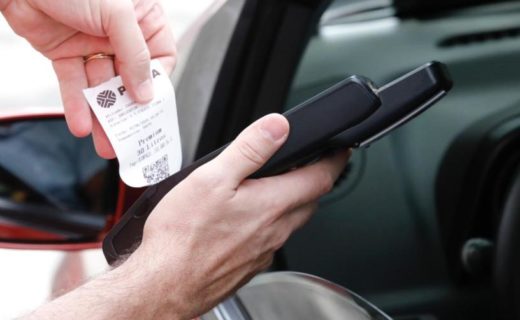
A ways to apply distributed ledger technology in the telecommunications sector.
Mobile telecommunications are based on SIM subscriber identity module cards. This technology was developed back in 1991. Gradually, SIM cards are replaced with eSIM cards, which are a digital chip that has the same functionality.
But operators are increasingly complementing the eSim blockchain. Decentralized technology has a key to tackling roaming difficulties, high tariffs, fraud, privacy issues, and more. And rather, there are seven such keys. Here they are.
1. Free telephone service
In a capitalist society there are few free things. Nevertheless, telecommunication service providers have come up with a communication model in which subscribers not only do not pay, but also receive rewards for using communication services. This idea is based on digital advertising.
Telecommunication companies can earn advertising revenue by providing their customers with free communication services.
2. Refusal from roaming
A fortune is spent on travel roaming. Travelers usually either buy a prepaid local SIM card or turn on roaming.
Telecommunications company Bubbletone is developing a private blockchain for mobile operators and service providers to ensure direct interaction with subscribers, excluding roaming around the world. The team introduced a platform on which participants post requests and offers, and operators can distribute SIM cards among customers.
This interaction scheme allows operators to load their local capacities with the traffic of travelers without roaming. The traveler continues to use his own SIM card at local prices.
IBM also offers a roaming solution. The idea is not to cancel fees, but to “avoid disputes between the parties involved” that may arise from billing for mobile services. The tech giant has even written a code template that is open for discussion.
A decentralized communication model should be more effective than conventional prepaid travel plans. The cost of communication services with it decreases, and the average income per user and service life increase.
3. Confidentiality
Users are increasingly concerned about the security of personal data. It’s no secret that large corporations such as social networks trade user data. People begin to consciously relate to what they report about themselves on the Internet.
Data exchange encryption is not something radically new. Major telecom players encrypt their traffic without fail. Nevertheless, the blockchain takes privacy to a new level: private keys do not allow third parties to access other people’s messages, which makes user actions completely invisible to corporations.
4. Data trade
Unlike dairy products, mobile communications do not have an expiration date. Another option for using blockchain in telecommunications is coördinated data trading. Ericsson Consumer Lab reports that “consumers are increasingly learning about the amount of unused data that they leave every month.” Consumers have the right to benefit from personal data that they do not use.
Dent claims that its mission is to create a market for buying and selling data packages. One of the functions of his application allows you to trade unused user data.
5. Detection and prevention of fraud
According to a Deloitte study, telecom operators annually lose $ 38.1 billion each year due to fraudulent schemes. Most fraud occurs when people use fake credentials to purchase services or remain vulnerable when roaming.
Blockchain technology can change this: the mobile device will be tied to the owner’s identifier, but instead of the international identification of the subscriber, the owner’s public key will be used. Neither the operator nor any third party will need to know the private key.
Also, the risk of roaming fraud can be reduced by creating private blockchains that restrict participants from access to information. So, for example, only operators who have signed a roaming agreement can use the data. Each time a subscriber uses a guest network, a smart contract is executed in accordance with the terms of the agreement.
6. Data Transfer for the Internet of Things
The Internet of Things (IoT) is when your refrigerator and courier communicate with each other more often than you with close relatives. But several devices interact via the Internet, the risk of breaking into such a network is quite high.
Dishwashers may not have any secrets, but, for example, medical devices and computers connected to the IoT regularly work with confidential information. No one would want it to be available to outsiders. Blockchain can create a secure environment for data transfer. In addition, blockchain helps reduce IoT maintenance costs.
Iota, an open source cryptocurrency, was created to provide IoT with settlement microtransactions and data integrity. Iota offers a secure and scalable solution.
Telecommunications giant Huawei has already developed the IoT connection management platform, which provides «full connectivity between people and things.» The company offers modern computing technologies IoT and NarrowBand IoT, which are suitable for cases where the reliability of data transfer is more important than its speed. This technology provides widespread use, lower costs and energy consumption, and also increases average revenue per user.
7. Secure mobile payments
Even if mobile operators do not support blockchain solutions, paying bills via the Internet is still an option for many. Blockchain allows you to perform secure transactions, so many payment services are built on distributed registry technology.
For example, the Swiss telecommunications provider Swisscom, in addition to providing mobile, television, telephone and Internet services for individuals, is developing blockchain solutions for enterprises. Swisscom intends to push various industries forward with its expertise in distributed technology.
The introduction of blockchain is still facing resistance in the masses. However, when it comes to simplifying payments, reducing the cost of services or additional opportunities in roaming, everyone agrees that if the blockchain can make communication more efficient, let it do it.

Oleg Khovayko
Возможности блокчейна могли бы перевернуть телеком, но они телекому не нужны. А зачем, когда клиенты и так бабло заносят? Проще втихую подписать клиента на услугу «гудок» и грести бабло лопатой, да и всё. Вот мы сделали ENUMER несколько лет назад, давно уже работает — и не бегут в него стадами ни телефонные компании, ни пользователи телекома. Хотя выгода очевидна — повышение скорости, качества и надёжности соединения.